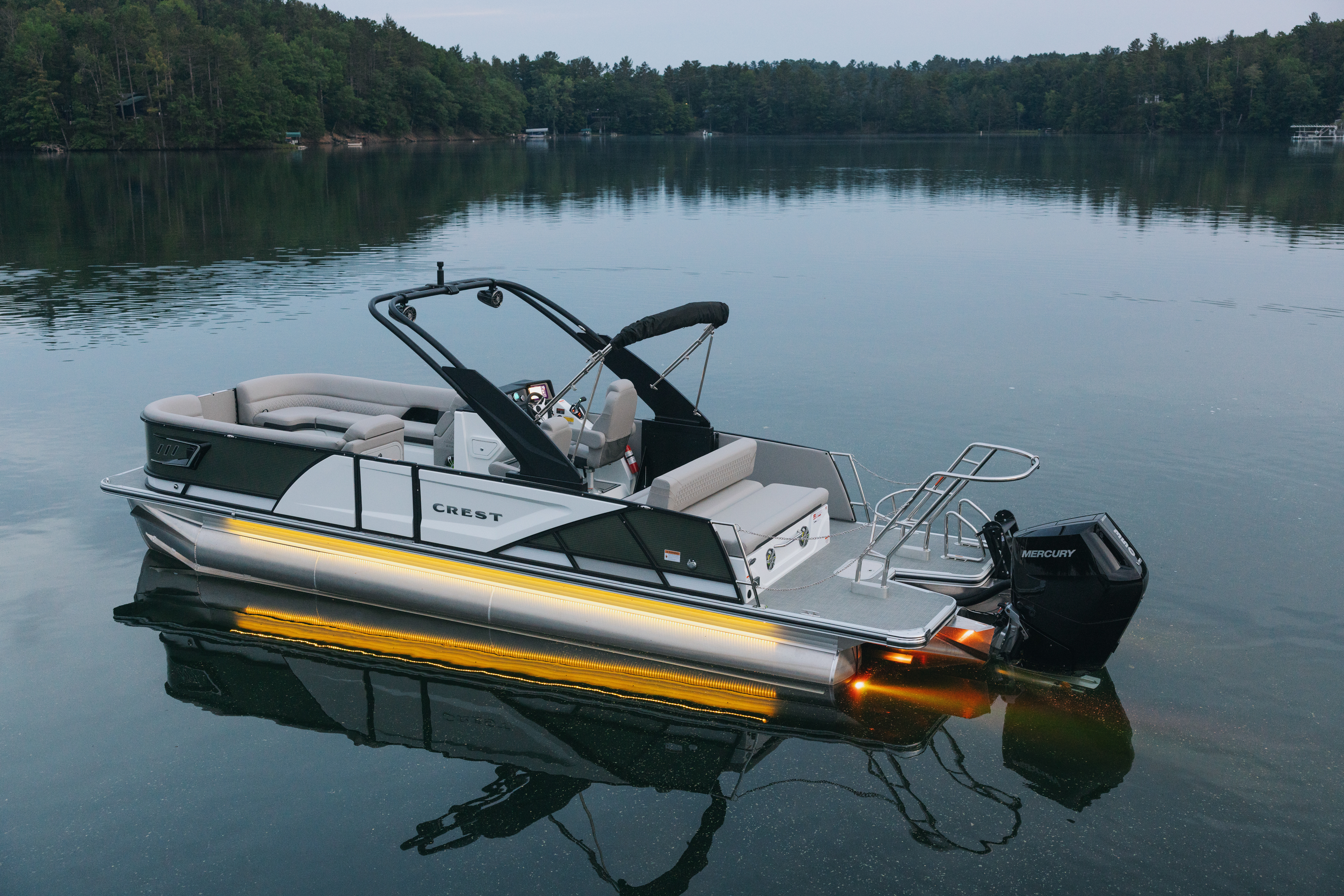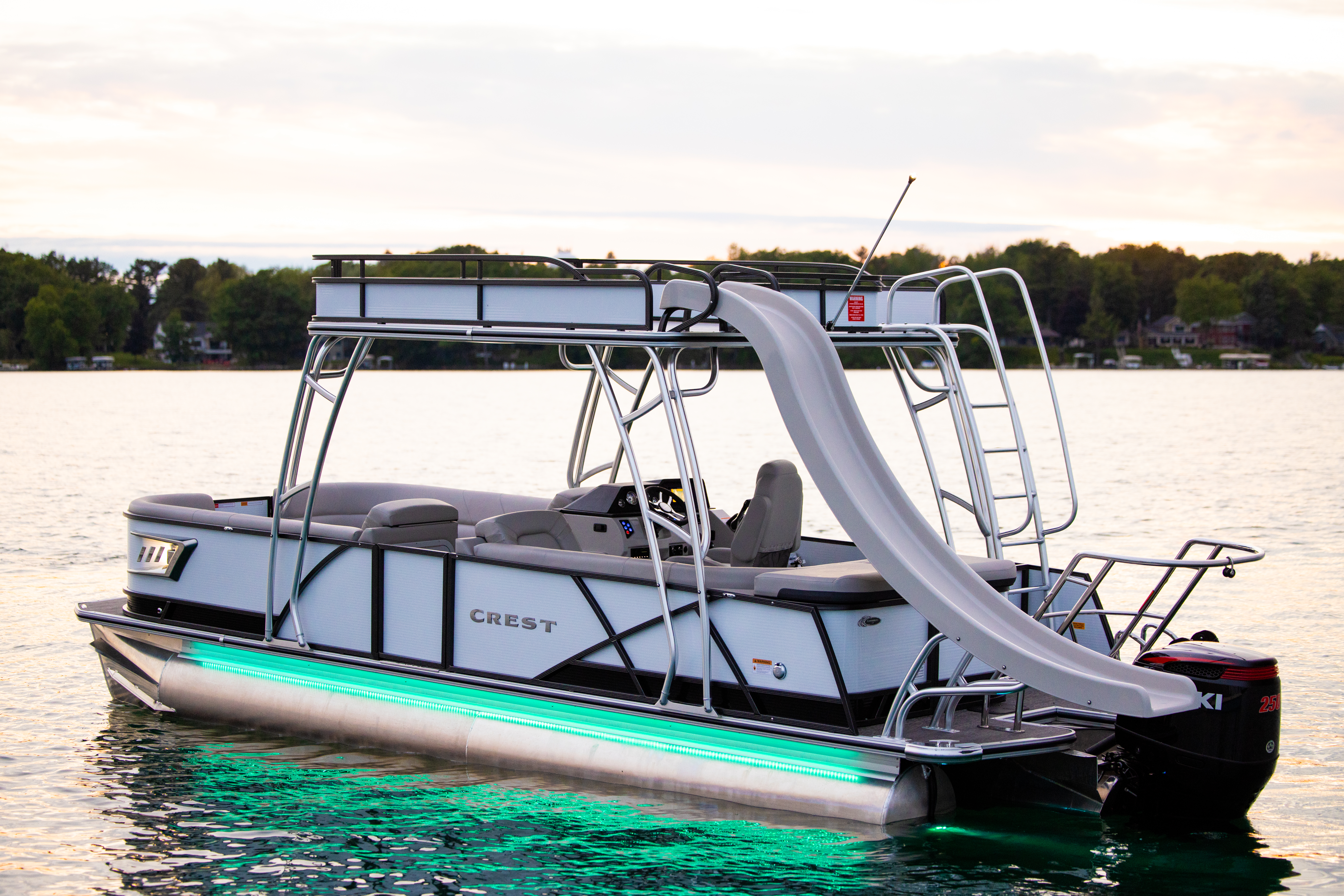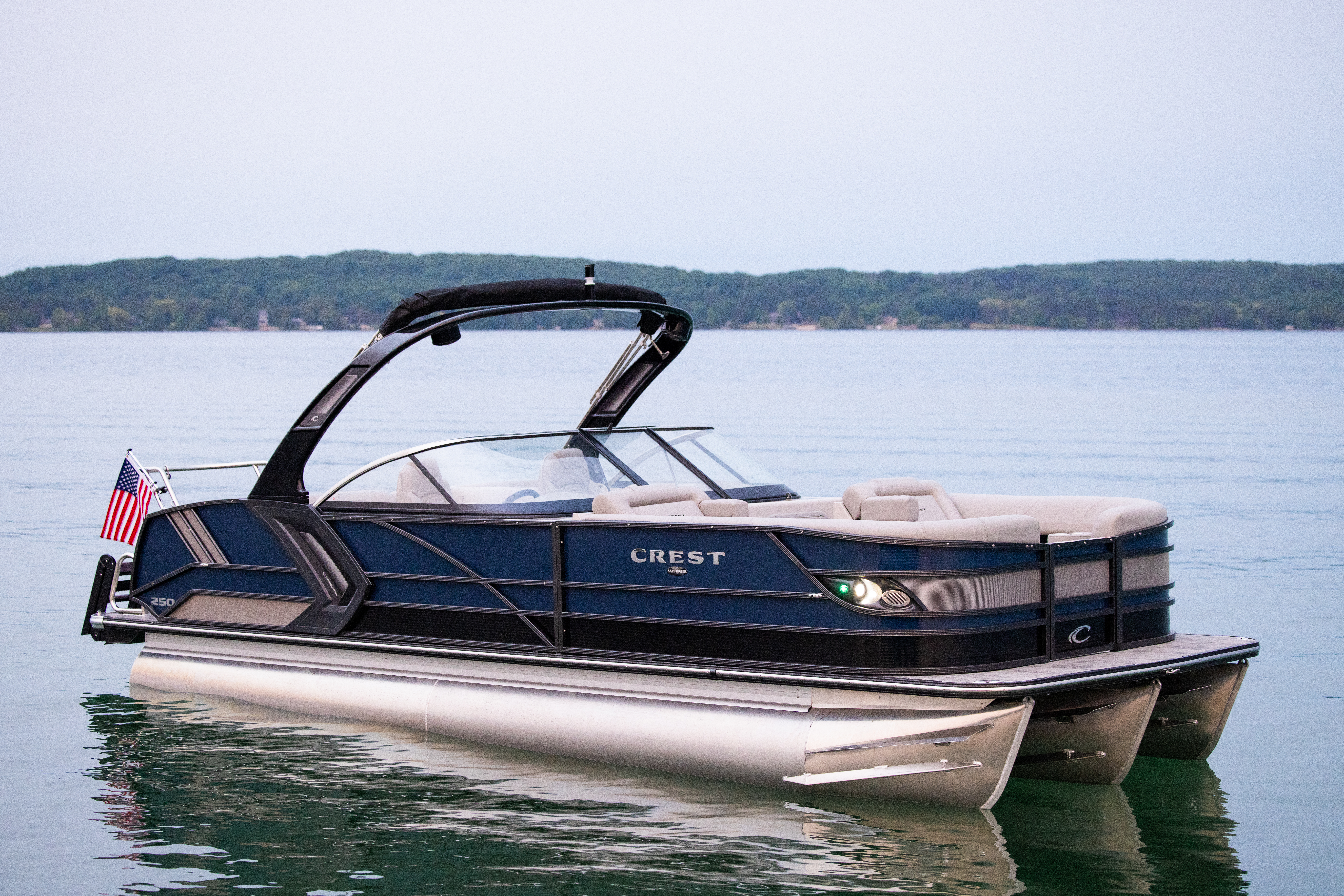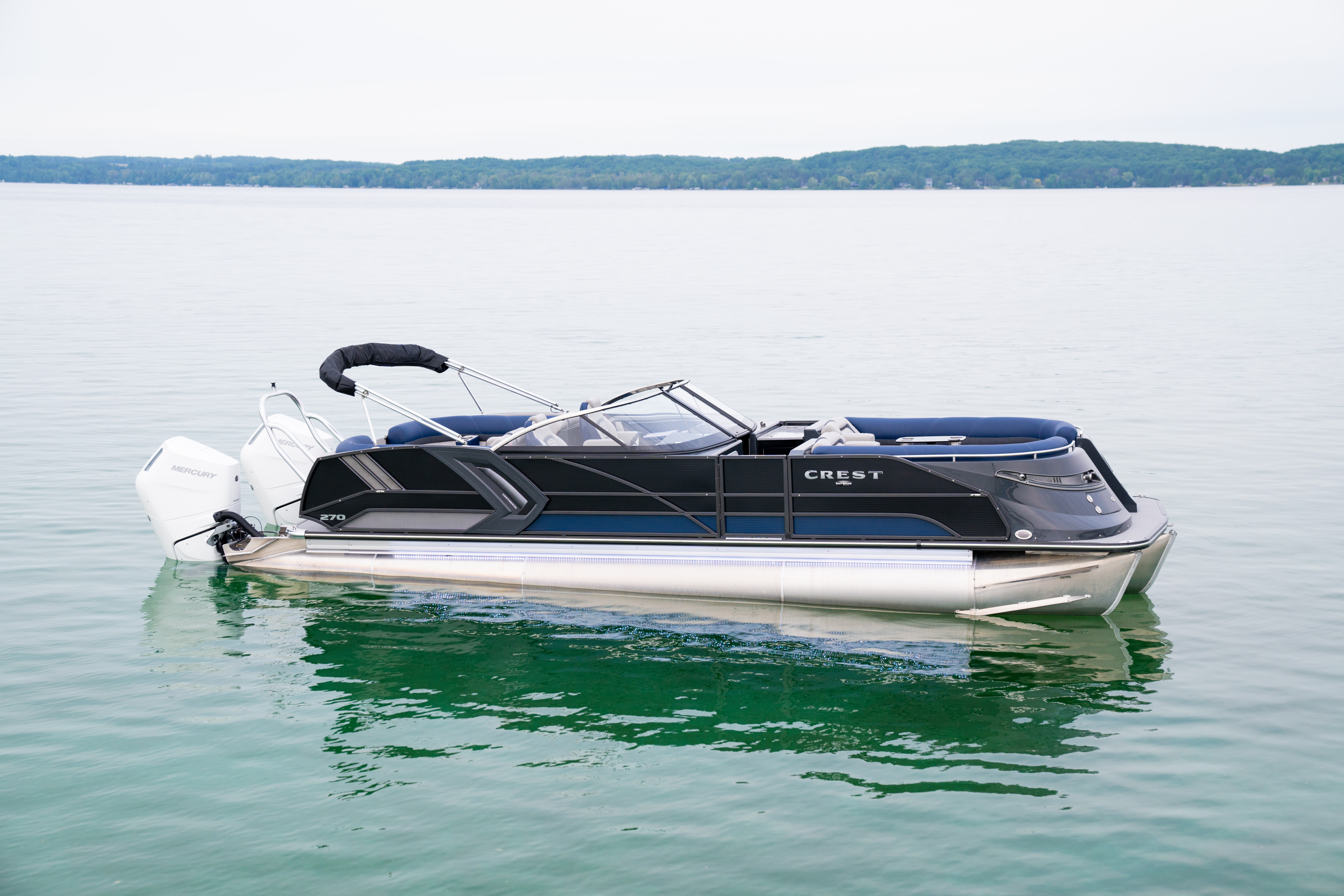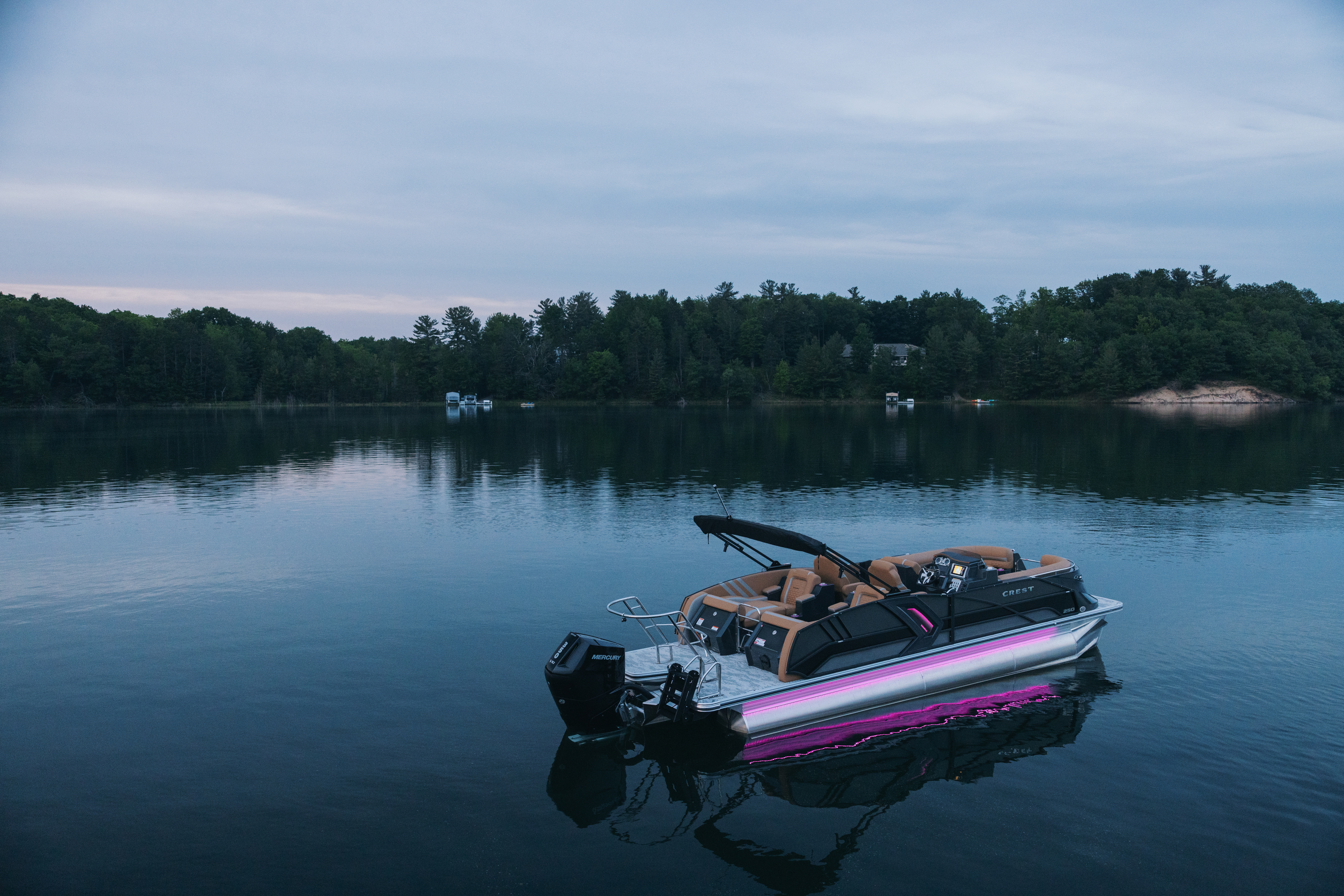Picking Between a Pontoon, Tritoon, and Engine Sizes
By: Crest Pontoon Boats on Thursday, August 24, 2023
First things first, pontoons have two tubes underneath their deck and tritoons have three. A tritoon’s third tube can help keep the boats stable, sustain faster speeds, and better take on choppy water. Not only does the increased stability allow for higher horsepower but also dual engines. A tritoon might be a good idea if you’re on a bigger body of water or interested in doing some water sports. However, if sunset cruising is more your speed, then you may not have a need for more than two tubes. Take some time to explore the extent of the options offered by Crest pontoons and performance packages.
When it comes to engines, you’ll likely be looking at an outboard for your pontoon. Horsepower is what you’re going to have to make a decision on. A few factors that could come into play include your budget, usage, storage, restrictions, dealer selection, and insurance.
Your allotted budget for your pontoon boat and engine is a direct determinant of what level of horsepower makes sense for you. Be sure to use your dealer as a resource for horsepower pricing and selection.
How you intend to use your pontoon should not only play a part in your decision between a pontoon or tritoon but on engine size as well. Are water sports an occasional or frequent occurrence for you and your crew? Do you plan on carrying larger groups of people, especially adults? Or will your pontoon mainly serve as a party barge or fisherman’s paradise? For cruising and fishing, you’ll likely want to stick with something in the 25 to 40 horsepower range. With occasional water sports, you’ll want to aim more for the 50 to 75 range. And lastly, if water skiing and boarding is a priority, then the largest engine available for your boat and budget would be best.
While this might not be as much of a factor if you plan to store your pontoon at your own private dock, your lake or marina may have restrictions to consider. And engines are included in boat length for any limitations on size.
It’s always a good idea to contact your insurance provider to see if they have any additional insight to offer. And rely on the relationship you have with your dealer for any other questions that may come up throughout the decision-making process.
Something on the higher horsepower end is better than an engine that's too small—a common mistake for first-time boaters—especially since you’re unable to stick more horsepower on the back of a boat than its certification allows. Purchasing too small of an engine can cause you to incur avoidable costs. And a larger engine means a higher resale cost. With that being said, don’t feel the need to overdo it. Simply do your research and go with what will best support your wants out on the water.

